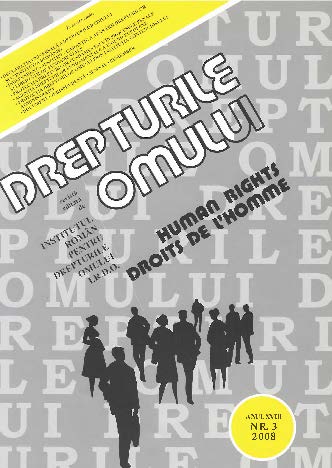Independența justiției – fundament al statului de drept și garanție a apărării drepturilor și libertăților fundamentale
Independence of justice - a foundation of the rule of law and a guarantee for the defence of human rights and the fundamental freedoms
Author(s): Ana Cristina LăbușSubject(s): Human Rights and Humanitarian Law, Public Law
Published by: Institutul Român pentru Drepturile Omului
Keywords: independence of justice; rule of law; human rights;
Summary/Abstract: In terms of the functioning of the rule of law, the independence of justice issue is viewed as a fundamental aspect of the separation of the State's powers: the Legislative, the Executive and the Judicial Authority. In this context, the notion of 'independence of justice' is analyzed in its double nature, as a State's power and as a public service. Independence thus allows justice to be equal to the other powers, while Power conferred to it allows it to perform its role as a public service. The analysis clearly shows, on the one hand, the decisive role of the judge in a country governed by rule of law, which cannot function without the latter's control. On the other hand, it is shown that independence is not a privilege of the judge, but a guarantee for the judge to have the possibility to exercise his social role; even so, such a guarantee is not instituted to the interest or in favour of the magistrate, but to the interest of the citizen, for the protection of the latter's rights and freedoms. The author largely examines the institutional independence of the judicial authority in relation to the other powers and to personal independence, as well as its guarantees.
Journal: Drepturile omului
- Issue Year: 2008
- Issue No: 3
- Page Range: 13-23
- Page Count: 11
- Language: Romanian

